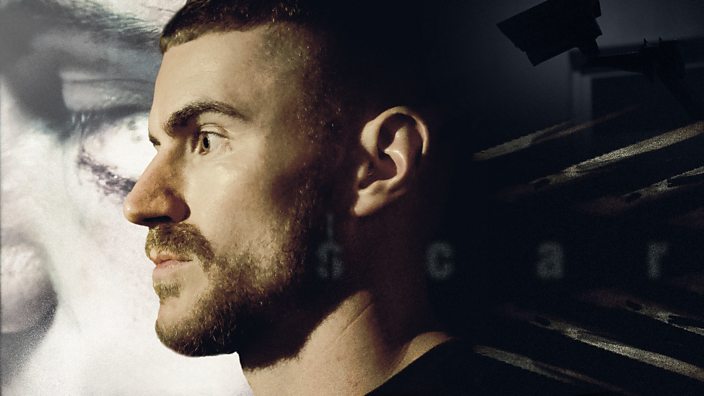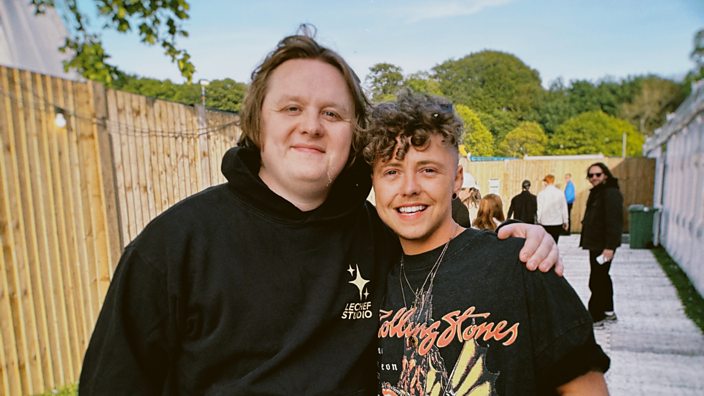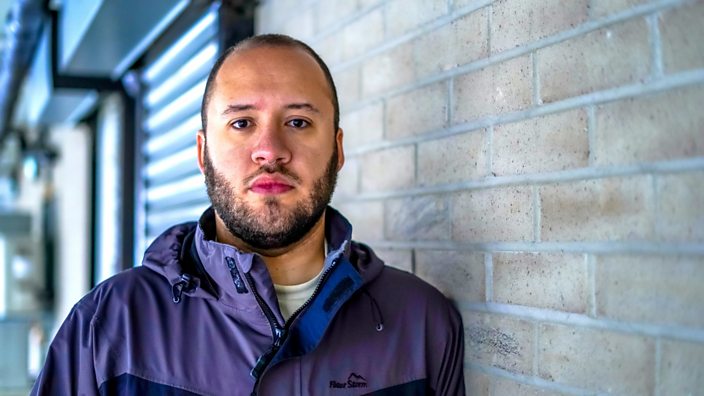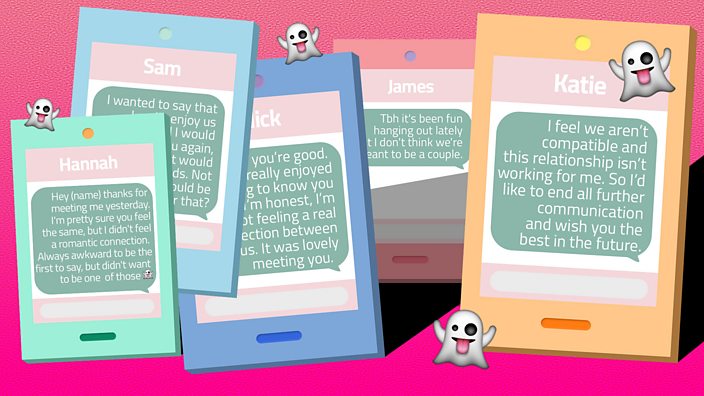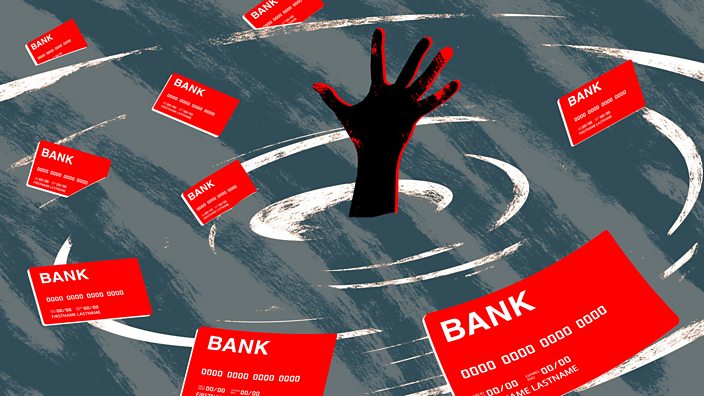 BBC Three / iStock
BBC Three / iStock‘I’m 29 and I’m in £60k of credit card debt…’
Liam began to spiral into debt after taking on an unpaid internship
Liam*, 29
I was 24 when I got my first job in finance and I was desperate to fit in. My colleagues wore expensive suits and seemed to have endless funds for weekends away and posh dinners out. It was nothing like the charity sector where I’d started my career - where wages are low but people really care about the work. This was the opposite - a really laddy, competitive environment, and suddenly I was surrounded by people who’d obviously come from family wealth.
I worked in sales, and there was a lot of pressure to socialise and get to know other people in the industry. Before long, I was going out four nights a week, and the bars near the office were far from cheap. Sometimes, I could expense these evenings, but often I couldn’t. I’d head to the bar to buy a round of drinks for my colleagues and I'd sweat as I waited to see if my credit card would be approved. I couldn’t think of anything more humiliating than admitting that I couldn’t afford to pay my own way.
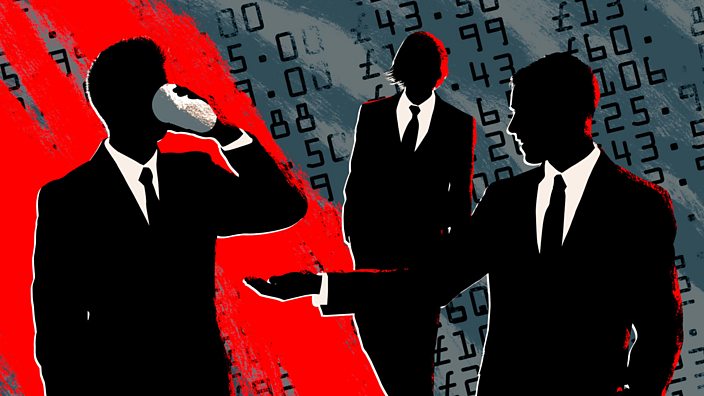 BBC Three / iStock
BBC Three / iStockLike a quarter of young people in England and Wales, I'm constantly in debt. And the £60,000 that I owe (which excludes student loans) amounts to more than seven times the £8,000 average debt of someone living in the UK. Thinking about it makes me feel sick to my stomach. The proportion of young people in need of financial advice has been going up too: 15% of calls to the free helpline National Debtline are from people aged 18 to 24, up from 8% in 2008.
Instead of being honest about my situation, I applied for a credit card with a £4,000 limit.
My downward spiral started when I was 21. Fresh out of uni, and having failed to save any cash over the summer, I used my £1000 overdraft to help fund a six-week unpaid internship with a charity. When they took me on afterwards as a £12,000-a-year paid intern (a very low wage in London, where the average salary is £37,804 and the living wage is £10.55 per hour), I quickly found that once I’d paid the rent on my room there was barely enough left to cover my food and travel for the month. Foolishly, instead of being honest about my situation with my mum and my bosses, I applied for a credit card with a £4,000 limit to give me some breathing space.
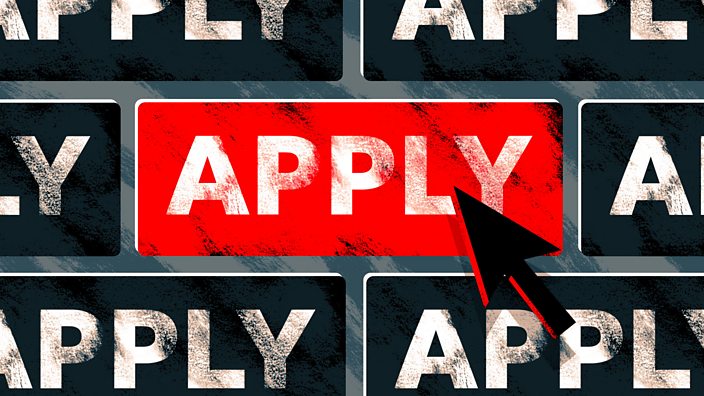 BBC Three
BBC ThreeThen, on my 23rd birthday, I tried to pay my rent with my credit card and the payment wouldn’t go through. It felt like a gut-punch. I had been avoiding checking the bills. Looking back, I can’t believe how naive and stupid I was. I had no idea how much cash I was really spending. In the end, my mum agreed to loan me my rent money, but I felt truly terrible about it. As a retired teacher, she wasn’t in a position to bankroll me and I felt like I’d failed her.
A month later, I applied for a second credit card, telling myself that I’d make more cuts to my outgoings - I’d stop taking public transport and walk an hour or so each way to my office each day. I’d make all my lunches and get a bar job to supplement my income. The second credit card arrived in the post four days later. I’d barely been sleeping because I was worrying about money.
The debt I had racked up, which seems small now, felt insurmountable then. It was so easy to get a second credit card: I just filled in a form online and I was approved for another £5,000 in seconds. I realise I was incredibly lucky to even have access to that kind of credit. Sometimes, when I couldn't see a way out, I'd turn to internet forums where people were talking about owing a lot of money. Some of them spoke about how scared they were that their homes would be repossessed, or that their kids would go without. Their stories gave me a reality check.
I didn't want my situation to spiral any further and, after a long chat to mum - where I told her some but not all the truth of my situation - I applied for a job in banking which came with a £37,000 salary. I got it and decided that, even though I felt like a sell out, it could be what I needed to get back on track.
I hoped that would be the end of my money worries but, looking back, that’s where they really started. I paid off some of my debts with my first pay cheque - enough so that I still had credit but never the full amount. Around then, my landlord decided to put up the rent on the flat I was sharing with two mates. They could both afford it, and I didn’t know what else to do, so we agreed to stay and fork out more. I considered moving home but my mum lived far from London, in the rural area I grew up in, and it would have meant giving up my career.
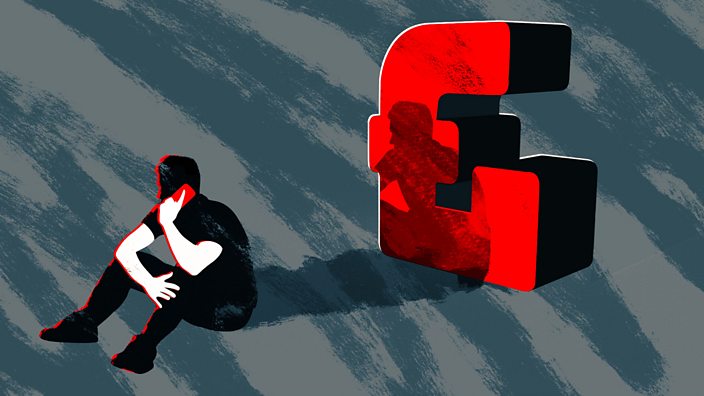 BBC Three / iStock
BBC Three / iStockWhen I was 26, my friends started to get engaged. In the past three years, I’ve attended more than 15 stag dos and weddings. The most extravagant was in Las Vegas and I was the best man. We all made a holiday out of it but the costs just got out of control - it came to thousands of pounds and it all went on a credit card. Even the cheaper stag dos would run into the hundreds. It sounds ridiculous, but at the time, all I thought was, "These people are my best mates - how can I say no?"
Under the surface, I was feeling more and more anxious about my spending. Instead of confronting it, I just got more credit cards - passing the balances onto different ones, trying to shop around for ‘deals’ but never actually paying anything off. I started to feel like I was hooked on spending. Every time I paid for something I couldn’t really afford, like a new pair of trainers or a posh takeaway, I got a small adrenaline kick. The closer to my credit limit I got, the bigger the buzz became. Spending money made me feel good, like I had a grip on my life - when the exact opposite was true.
I’d feel this immense pressure. It was like I was suffocated by my own lifestyle and choices.
Every time my salary went up, my debts jumped an equal amount. I knew a crash would come, but I didn’t want to think about it. Unopened bills piled up in my hallway, I lost track of which credit cards were at their limit and I'd sometimes even worry whether my rent was going to clear. Don’t get me wrong - I worried every time a payment was due, but I got good at ignoring the part of my brain that was silently adding everything up.
Every so often, when I’d get home from a weekend away, or when I was nursing another hangover, I’d feel this immense pressure. It was like I was suffocated by my own lifestyle and choices. I’d tell myself "you’re just tired" or "it’ll be fine" but, looking back, I can see that this was just the bad feeling accumulating.
About two years ago, my friends started to buy houses. It was then that it dawned on me that I had six credit cards, some maxed out, and my bank loan. I realised that if I ever wanted to buy a place myself, I’d need to scrape together the money for a deposit and somehow get accepted for a mortgage. I couldn’t rely on my parents like most of my friends could.
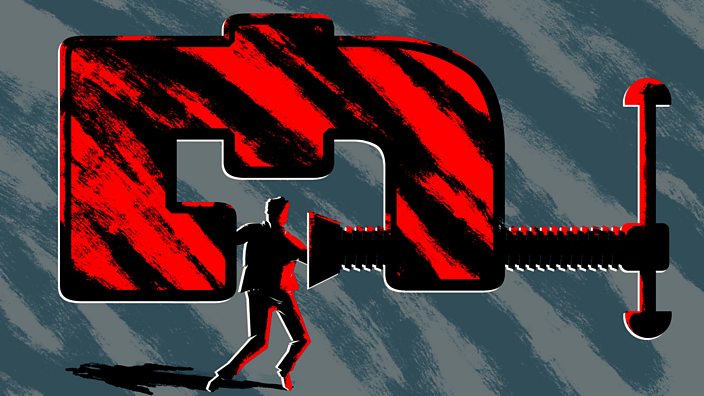 BBC Three / iStock
BBC Three / iStockI knew I couldn't live like this any longer, and I decided it was time to get some professional advice. I called a debt helpline and they encouraged me to make spreadsheet of everything I owed. That was the first time I’d ever sat down and taken it all in. It took me an entire Sunday and, by the time I’d finished, I was sitting with my head in my hands trying not to cry. I was so ashamed. I so wanted to ring mum and tell her how bad things had got, but I’d been lying to her for so long, I couldn’t see a way out. My debt had left me feeling totally isolated and alone. Instead of talking to anyone, I drank the vodka I’d been given for my birthday that year until I passed out. I think that was my rock bottom.
I decided to make my first positive change, and moved out of my flat and into somewhere much cheaper. I took out a bank loan to pay off a few of the credit cards. I was still deep in my overdraft, but I had a handle on things. Over the next few months, I started to rein everything in: I stopped going out in the week and cancelled my gym membership. Honestly, it felt like waking up from a dream.
For the first time in about five years my debts weren’t going up.
I started to think seriously about why I’d ended up like this, and why I’d felt the need to keep saying yes to things. I knew by then that I didn’t need to do it to fit in. I knew the friends I had now would stick around no matter what. I knew my girlfriend wouldn’t leave me if I didn’t buy her gifts all the time. Don’t get me wrong, I still get the urge to indulge in reckless spending but I’ve learnt to rein it in. Most of the time.
I’m lucky that I’ve kept my job and have been promoted, if not, I’d never have a hope of paying all this back. As it is, I feel like while my friends are moving forward in their lives, buying houses, settling down, I’m trapped in limbo. I’ve had some amazing experiences but they’ve come at a very high price - including disappointing some of the people I’m closest to. I funded my twenties using loans and credit and I know I’ll spend the rest of my life paying it back.
Worried about your own debts? Here are five tips from the experts at debt charities StepChange and National Debtline:
1. Make an honest spreadsheet of every single one of your incomings and outgoings: this will help you decide if you can recover just by making day-to-day cutbacks, or if more serious action is required.
2. If you’re borrowing cash for essentials like food, explain your situation to your lenders and ask them if you can switch to lower monthly repayments – they may be willing to negotiate if you have a plan in mind.
3. Prioritising your debts is key: deal first with council tax and utilities, then make sure every minimum repayment is covered. After that, pay most towards loans with the highest interest and charges.
4. Look for ways to cut your spending, like switching supermarket, switching bill providers or walking instead of driving, where possible.
5. If you can’t cover your minimum debt repayments or rent and bills, consider speaking to a debt advisor.
If you have been affected by any of the issues raised in this article, information about help and support is available here.
* Name has been changed
This article was originally published on 19 February 2019




